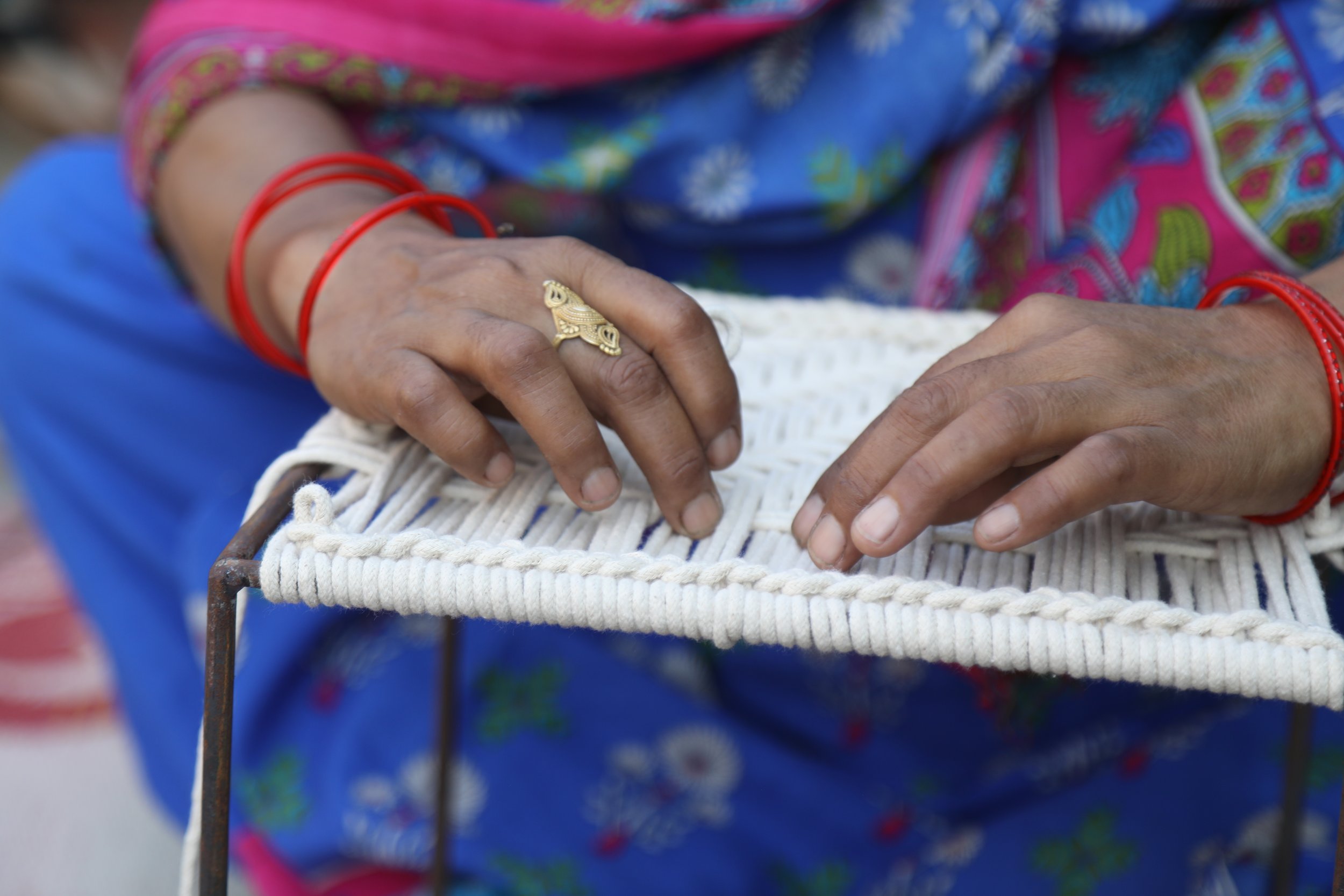
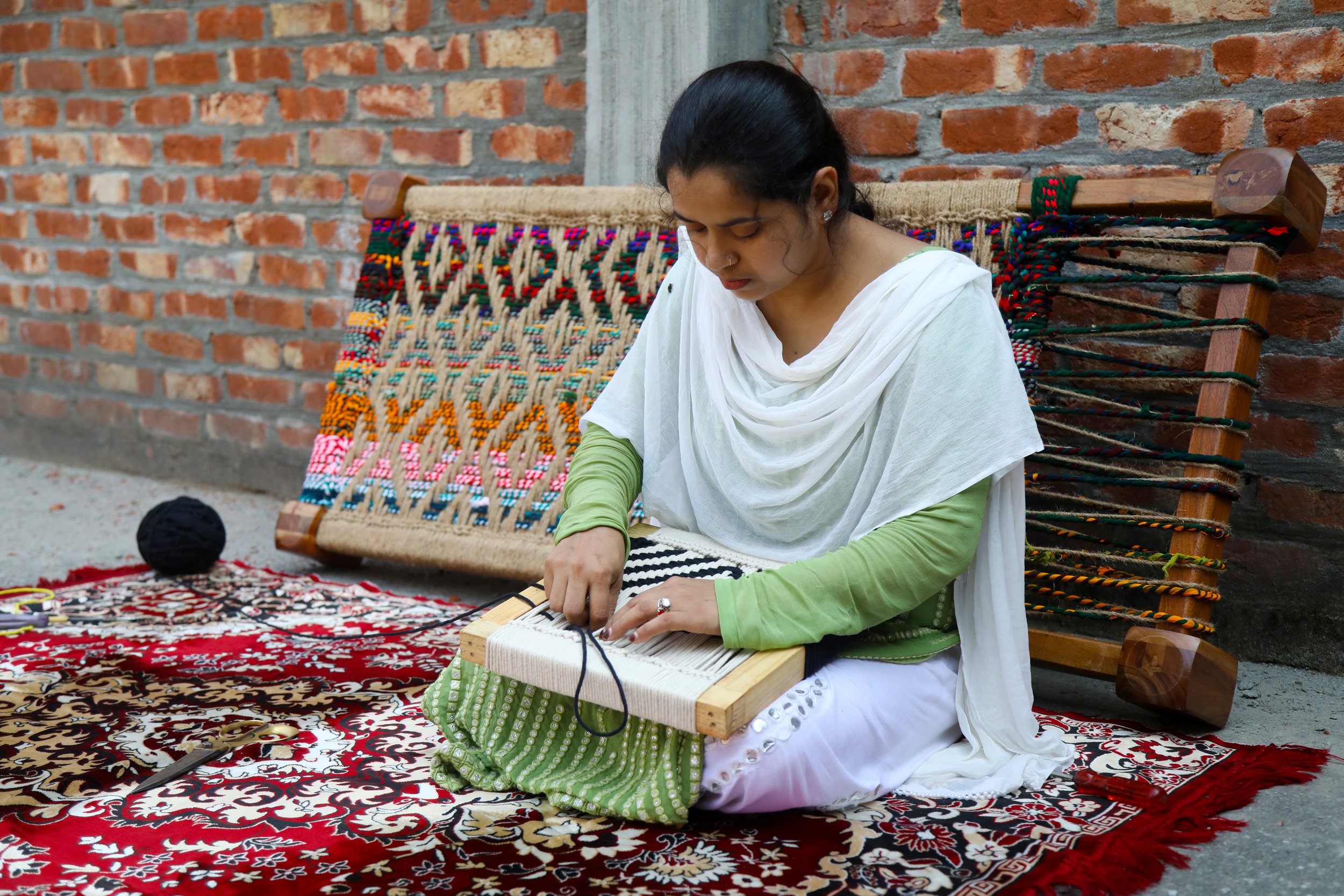
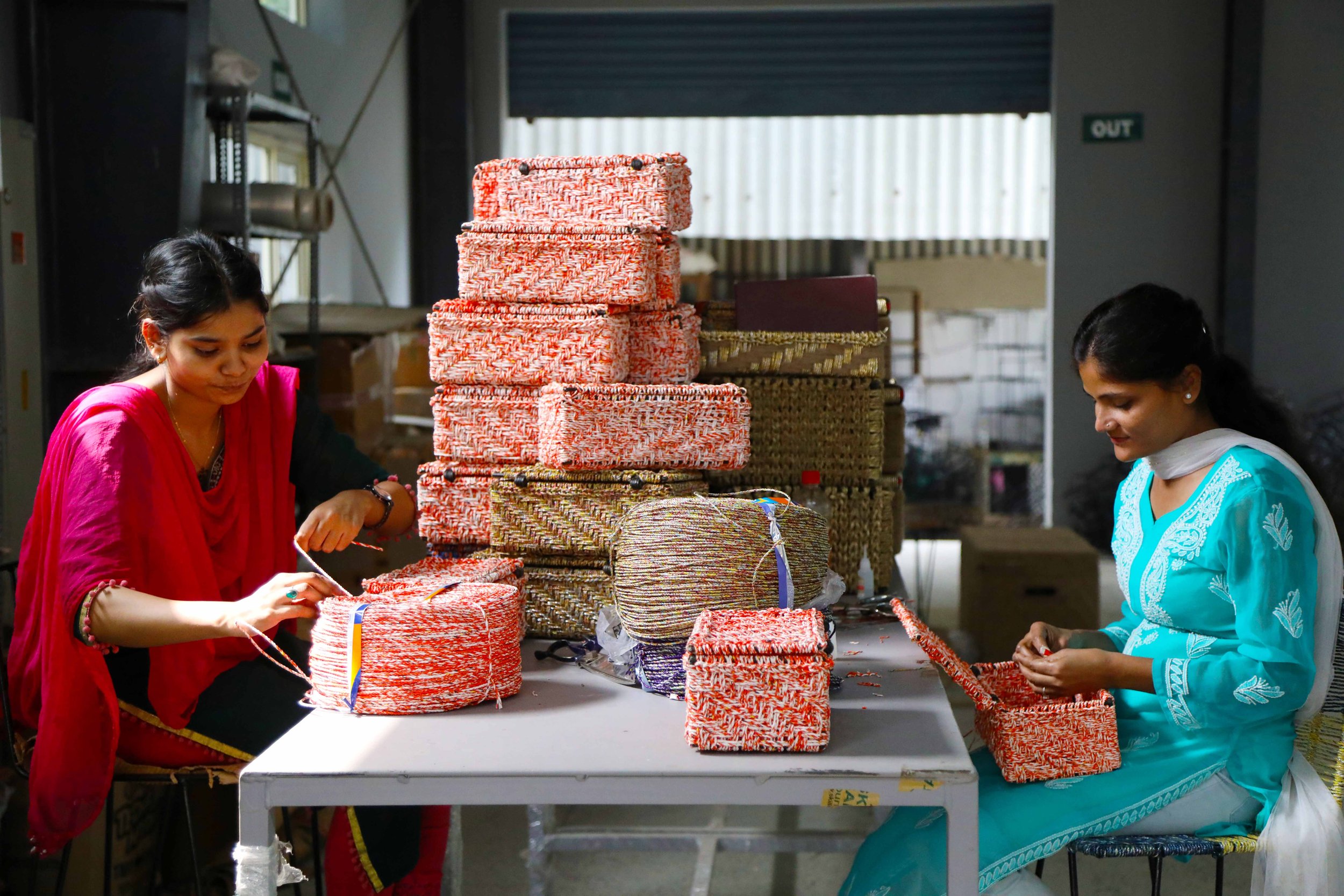
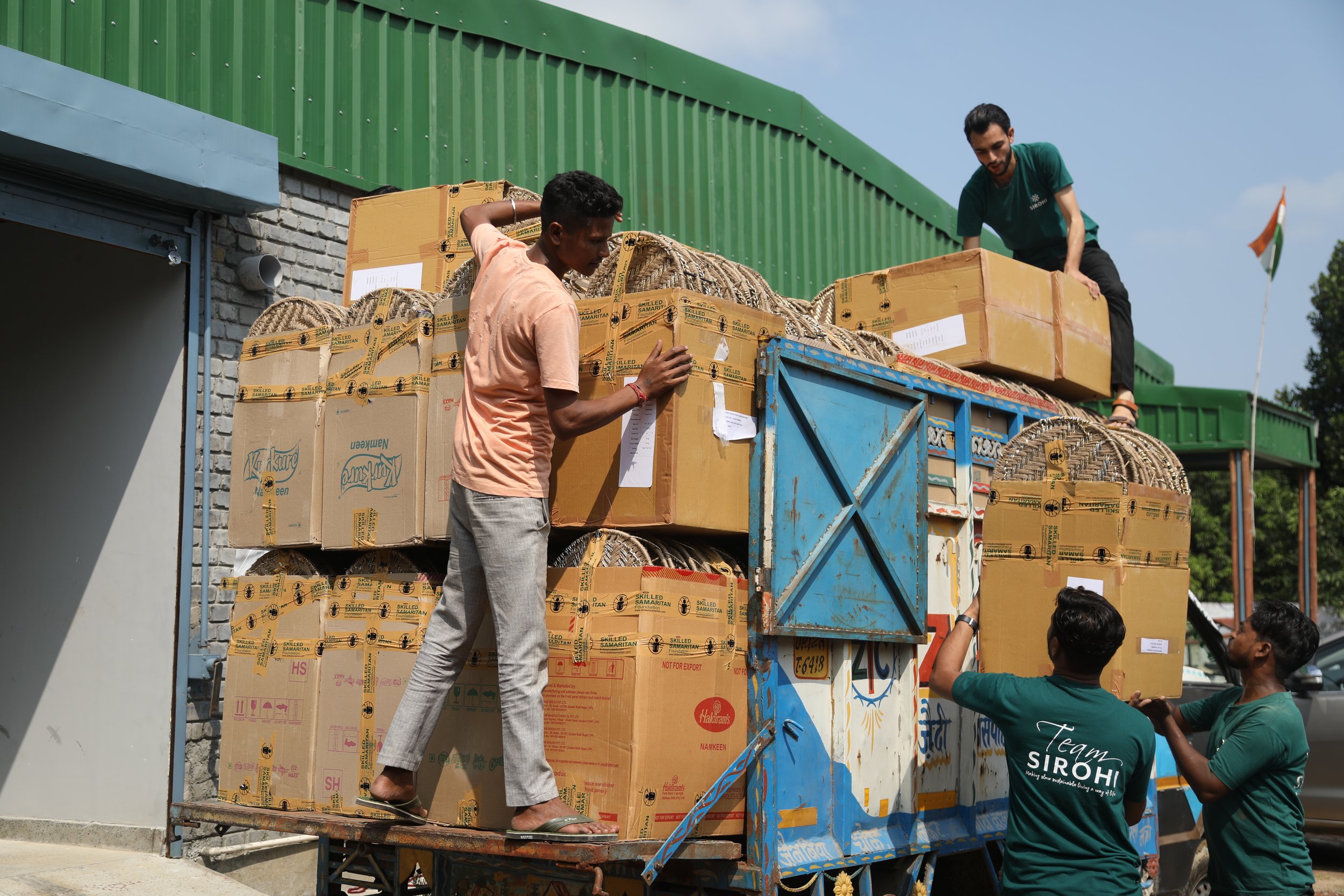
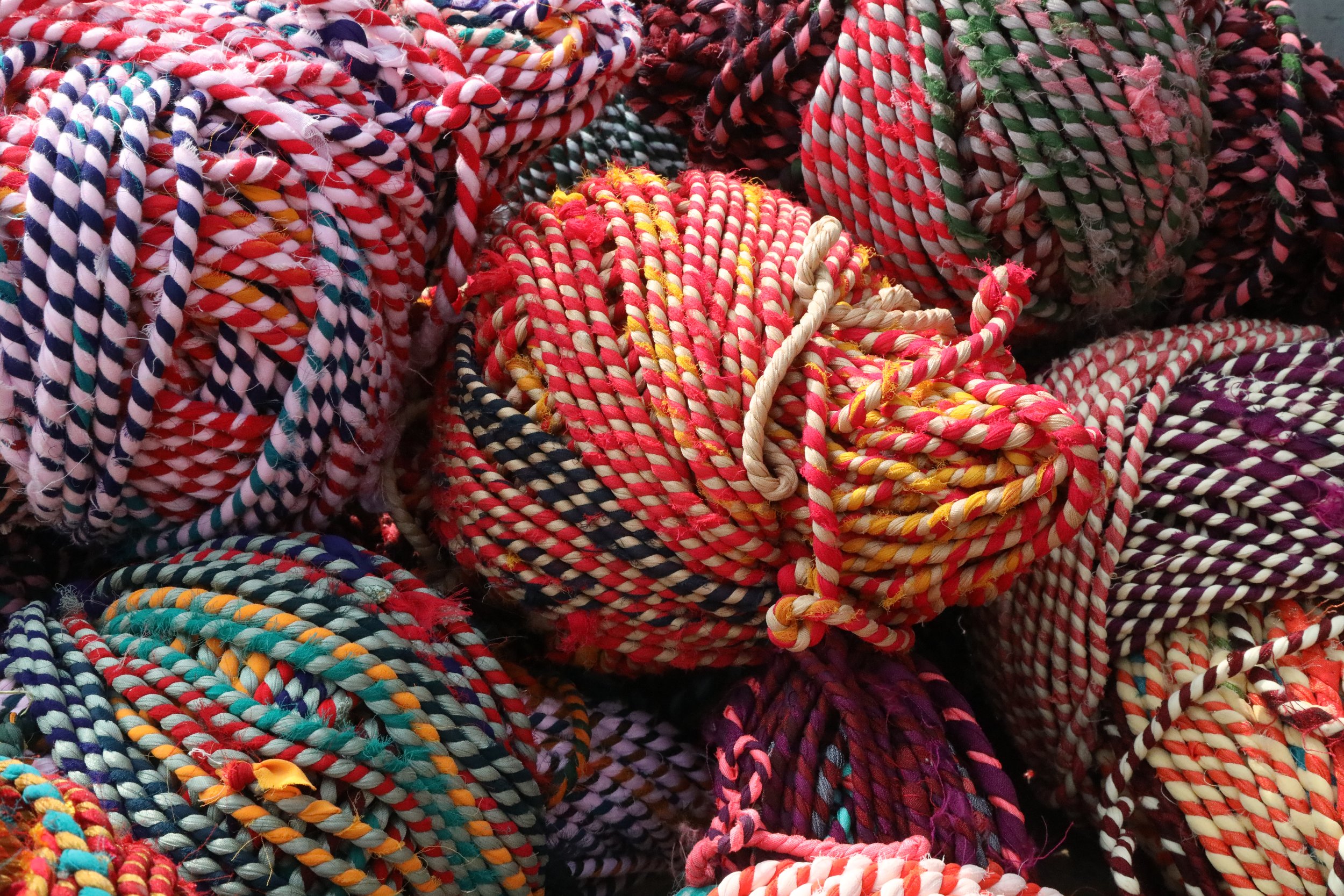
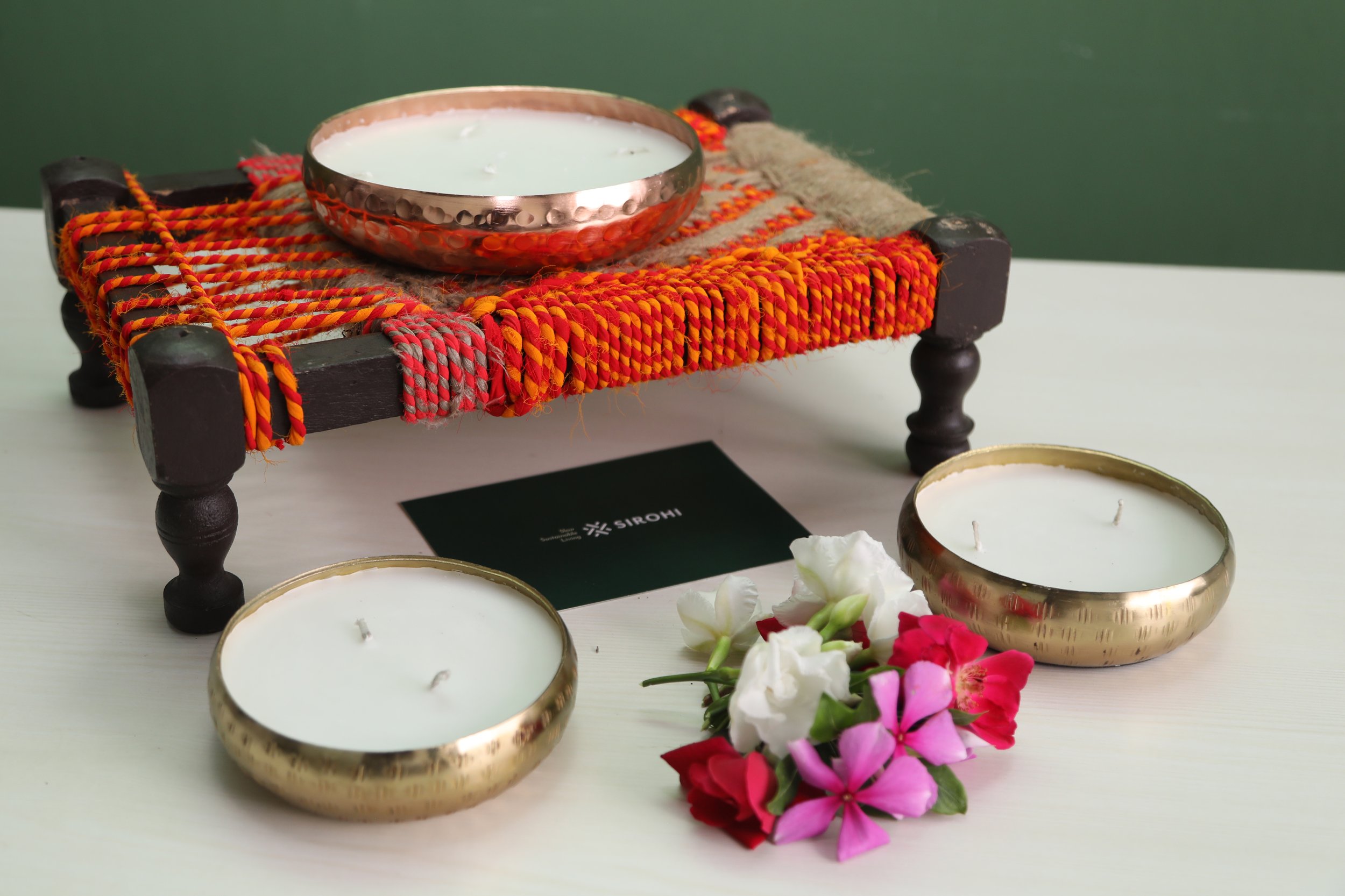
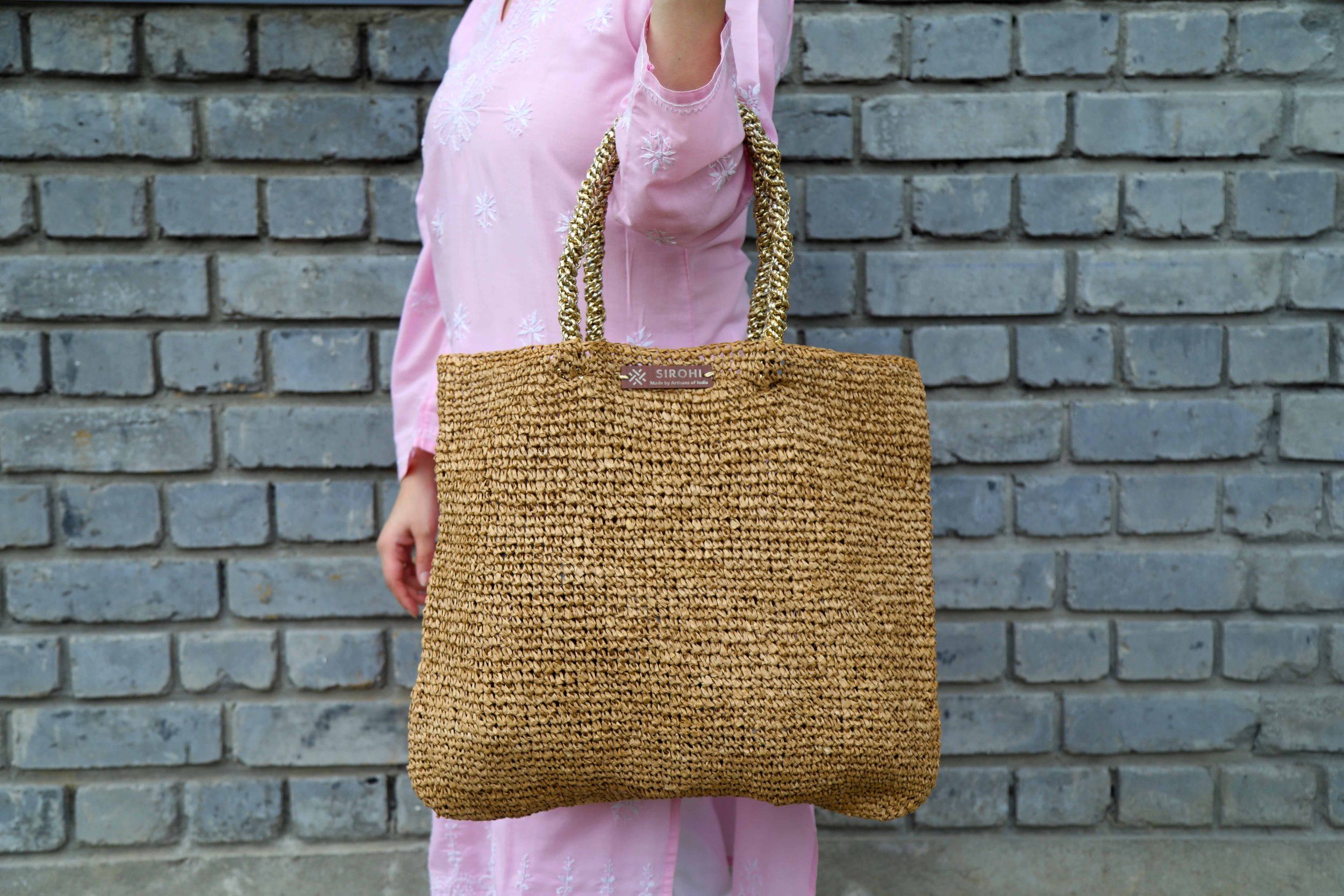
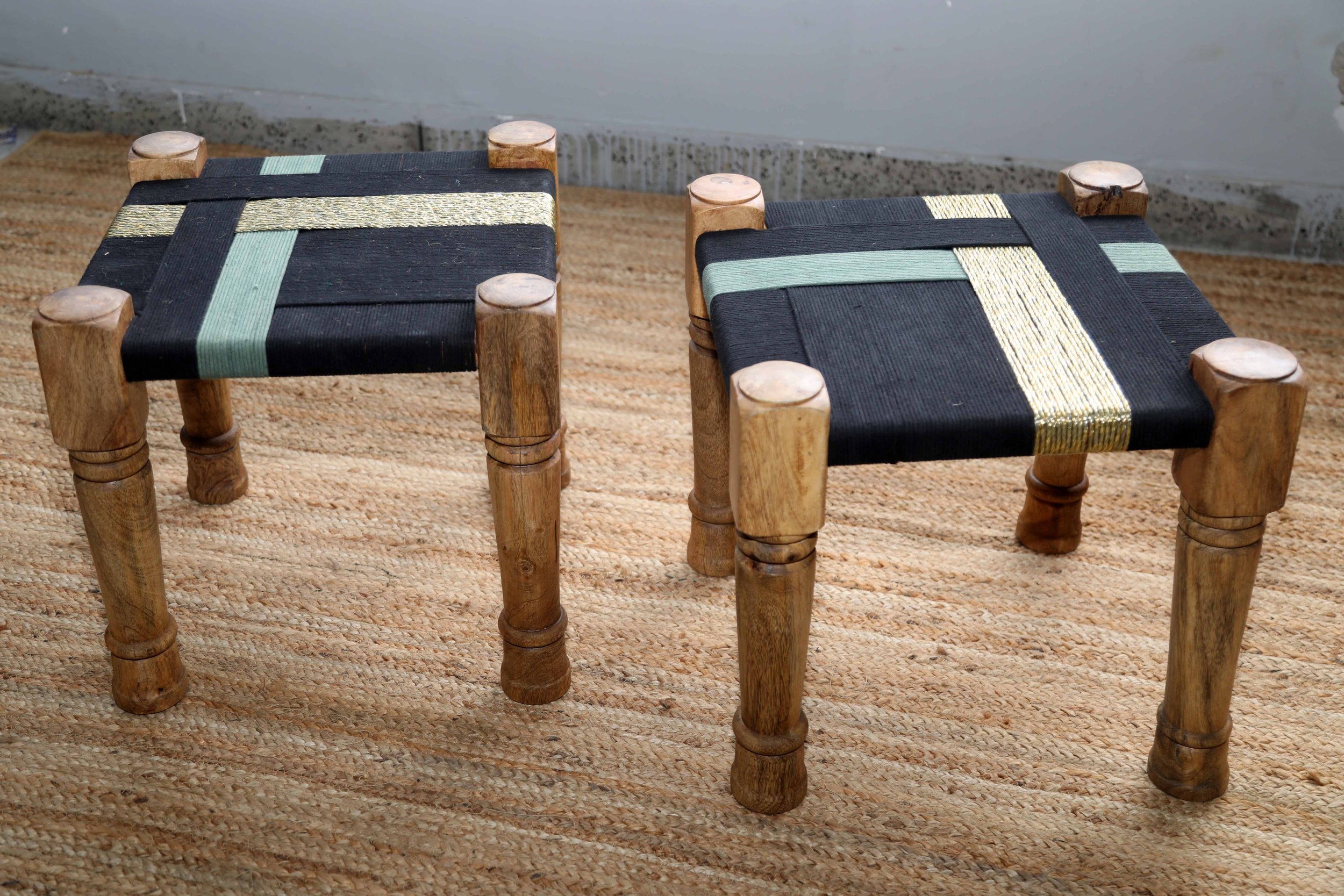
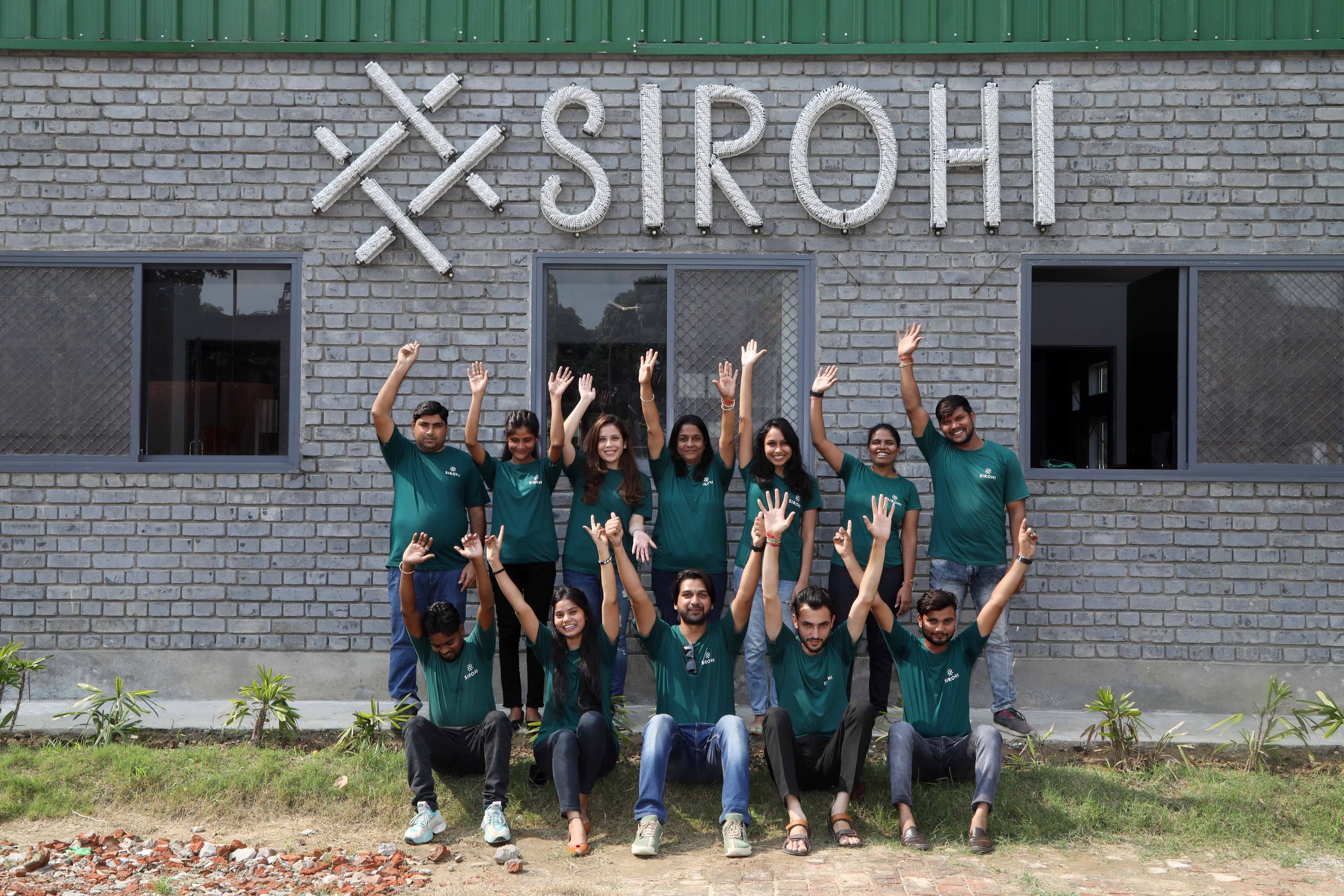
Crafting steady income opportunities for women in EQUITY-SEEKING communities
WORDS AND IMAGES BY VERA NIEUWENHUIS
EDITED BY TAMARA BLAZQUEZ HAIK
India is the most populous country in the world after China, with over 1.3 billion inhabitants. It is expected to surpass this number by the end of 2023, however, according to findings from the National Conference on Conservation Agriculture. The state of Uttar Pradesh in Northern India has the largest proportion of poor people in the country, as roughly one third of the population lives in poverty.
Muzaffarnagar, a district in Uttar Pradesh, is one of the largest districts and has a diverse make-up of ethnicities and religions. Approximately 55% of its population is Hindu while 42% is Muslim. Despite this vast diversity, the Muslim population in Muzaffarnagar suffers from discrimination when it comes to employment and education.
Shop merchants conduct business in the streets of Muzaffarnagar, Uttar Pradesh, in October 2022. Roughly one-third of Uttar Pradesh’s inhabitants live below the poverty line.
In order to tackle this situation, Skilled Samaritan Foundation (SSF), whose mission is to provide steady income opportunities to women and girls in equity-seeking communities, created the brand Sirohi. This artisan-backed brand for luxe-sustainable home décor, gifting and lifestyle products has impacted about 3,500 artisans from over 5 states in India.
“I don’t want women to be subservient to the men in their households. They must be given opportunities of their own.”
Pictured is a Sirohi charpai, a traditional woven bed. Sirohi, the brand, is supported by the Skilled Samaritan Foundation. It provides income opportunities to marginalized women in India by recognizing their existing craft skills and providing them with tech-based design support to help them create lifestyle and home décor products.
Skilled Samaritan’s work began back in 2012 in the village of Sirohi in rural Haryana, which it is named after. Gauri Malik, SSF’s Founder and Director, was brought up in Muzaffarnagar, where she realized how limited the opportunities were for women and how financially reliant both her mother and her were on her father while growing up.
Gauri did not wish to see this trend continue and wanted to find a way to tap into the valuable resources that Muslim women of the area could bring to the table, like crafting and weaving. “I don’t want women to be subservient to the men in their households. They must be given opportunities of their own”. Thus, Gauri left her career in banking and finance in 2012 to pursue her vision.
Gauhar Fatma is the first master weaver to work for Sirohi. She resides in the village of Budhina. She creates dozens of products a day for Sirohi, including trays, benches, chairs, stools, and boxes. She is a Muslim housewife and mother of 2 boys. She earns approximately 10-15,000 rupees a month— about 35-40% of the household income.
As Sirohi began creating its products in 2019 in Muzaffarnagar, it had just one weaver, Gauhar Fatma, a very spirited Muslim woman who was willing to work despite the disapproval of many of the villagers and the refusal of other women to accept her work, as their religion frowns upon it. However, as it became apparent that the income generated from weaving products for Sirohi was a legitimate source of revenue, more and more women joined the workforce.
Today, over 750 artisans are engaged in weaving products such as trays, tables, handbags, and storage trunks, to name a few. This not only provides additional income for their households but also provides these women with a valuable skill set and a purpose that goes beyond the mundane duties of household chores.
Currently, the number of women in India’s workforce is declining. Prior to the COVID-19 pandemic, women made up to 20% of the country’s workforce, but this has since declined to 18.6%. Of every 1,000 women working in India, less than 101 are Muslim due to systemic discrimination against religious minorities. This is only further compounded by the fact that Muslim women live in small villages and do not have access to formal education.
Sirohi has been able to provide employment opportunities for Muslim women, like Zehra, despite the aforementioned challenges. "I started working at Sirohi in the harrowing age of the pandemic and it's been more than a year since. Back then, a few of the women in Budhina Village were working with Sirohi as weavers and I'd just spend my free time sitting around watching them. It was quite a moving feeling to see the women from the ever-so conservative Muzaffarnagar working and making a living. I just felt propelled to be a part of this movement.”
Family members and villagers also assist Gauhar with the weaving for Sirohi, as can be seen in this photo. Gauhar’s husband delivers the finished products to the Sirohi warehouse via a rickshaw and picks up raw materials to bring back to the village for Gauhar and the other villagers to weave.
“It was quite a moving feeling to see the women from the ever-so conservative Muzaffarnagar working and making a living. I just felt propelled to be a part of this movement.”
Zehra and many other women artisans at Sirohi are also working to expand the organization so “people from far away lands, even internationally, can be a part of it and get the same kind of support and encouragement that we received to get us here."
Another challenge that Sirohi is addressing is that of repurposing plastic waste and textiles by using upcycled and recycled materials in their products. Some of these materials include cotton cords produced from waste cotton fibers, jute fibers naturally grown in the region, upcycled plastic waste converted from unused industrial food packaging waste woven into rope, and textile waste from recycled clothes. These materials are clean, hygienic waste that would have otherwise been dumped and discarded.
Upcycled wrapper used to make rope at the manual rope-making facility in the woods near the village of Sisola, Uttar Pradesh. Rope is woven from upcycled wrappers, moong (from riverside plants), macramé (cotton cords) and chindi (recycled clothing).
Gauri has taken her vision from 2012 and expanded it to new heights. Her success with Sirohi not only demonstrates environmentally impactful solutions to plastic waste and textiles, but also that creating jobs that support women skilled in crafts can lead to their financial independence and security. It can create meaning and purpose in their lives despite the systemic discrimination and oppression that many of these women still face on a daily basis.
The aim is to build Sirohi as India’s leading brand for luxe-sustainable artisanal home, gifting and lifestyle products—where each product has a story to tell. The brand is centred around high-quality, well-designed yet affordable luxury products for globally conscious consumers. This is a niche that India lacks, as most artisan-made products are usually considered “too NGO-y”.
Pictured here is a Sirohi storage trunk. The artisanal brand Sirohi is supported by the Skilled Samaritan Foundation.
Gauri sees Sirohi in the same group and with the same wide buyer base as other global brands such as Crate and Barrel, Pottery Barn, H&M Home, and Zara Home. But she hopes this brand will also appeal to a core emotional need and leave behind a strong legacy of Indian craftsmanship.
Sirohi collaborates with conscious buyers for bulk/wholesale festival, corporate and personal gifting, and it has established a niche in the South Asian market as a leading brand for well-designed conscious products. To learn more about Skilled Samaritan Foundation and Sirohi, visit their website.
Minakshi Yadav is a member of the Packaging Team for Sirohi in Muzaffarnager. She is seen here doing a product inspection to ensure quality control. The Sirohi factory opened in July 2022 and houses the storage of finished goods that are quality-inspected and then packaged for delivery. The factory also stores raw materials such as wood and metal frames, as well as fibres that are used for weaving, such as jute.












